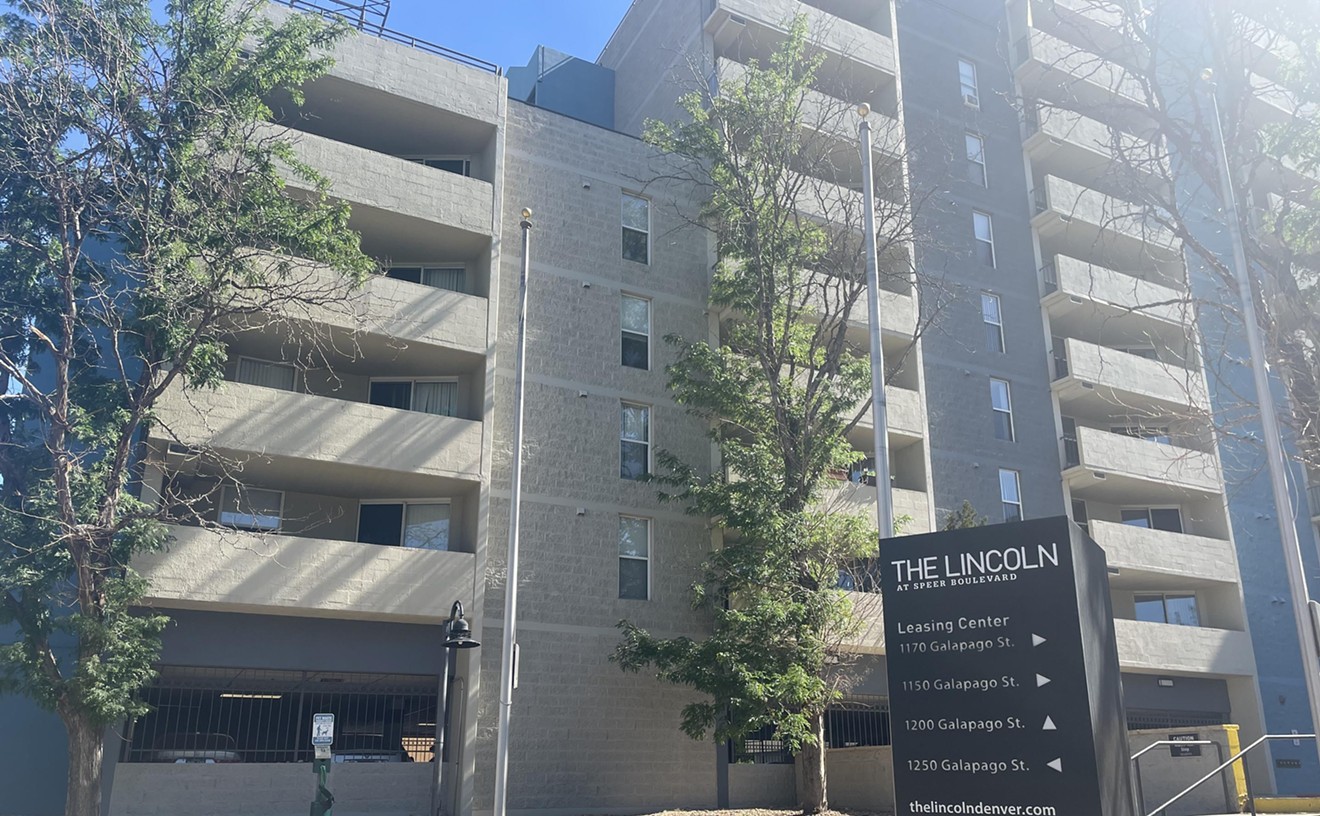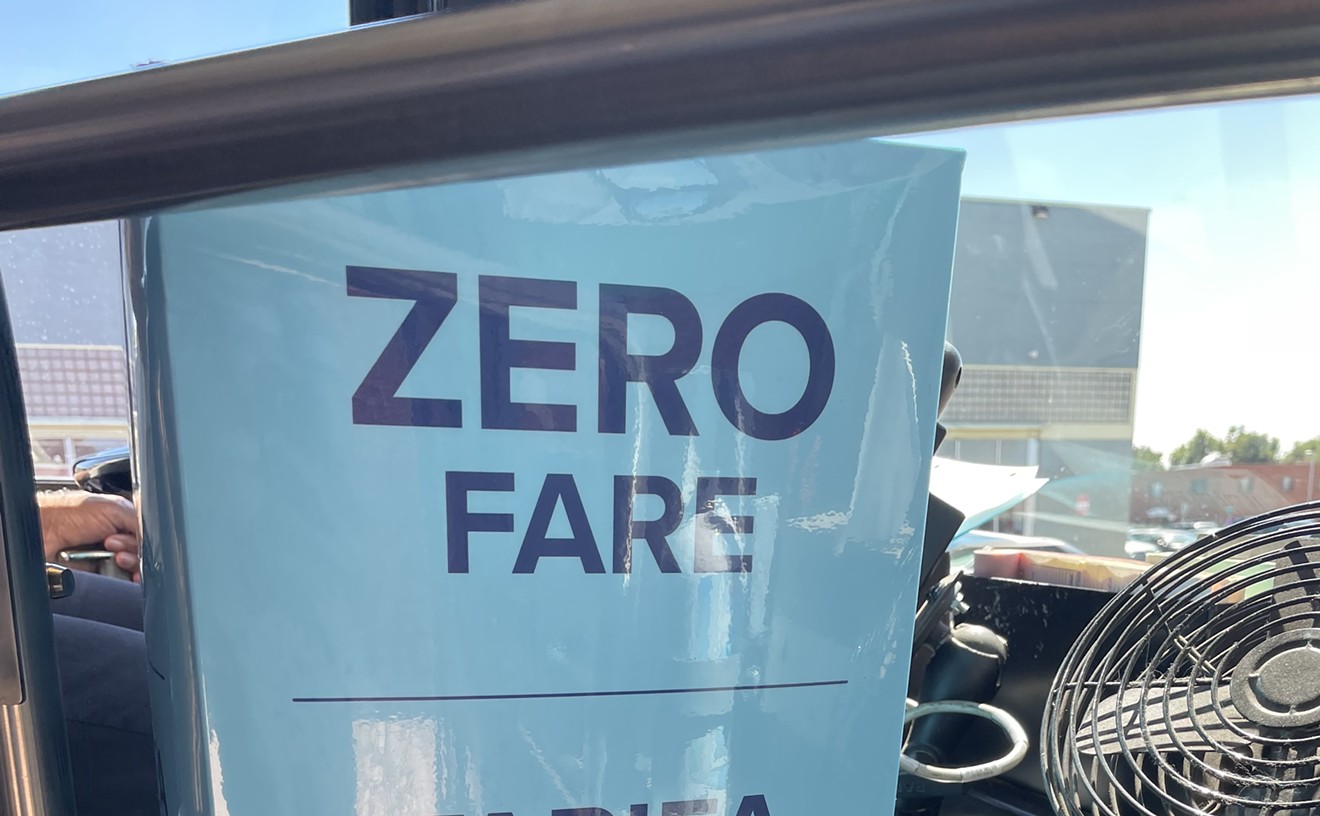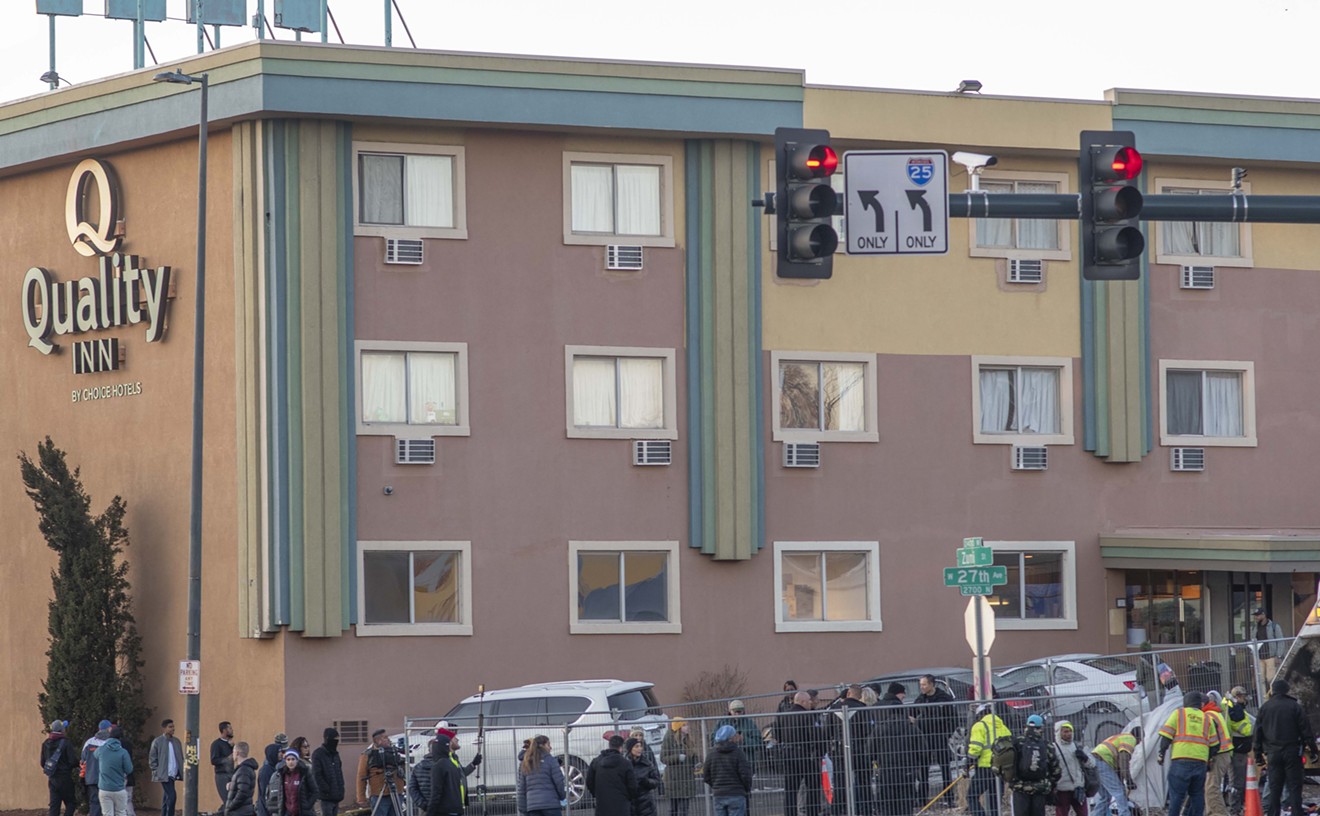He never really saw any camping, either.
"Why don't Latinos go outdoors here?" Salgado recalls wondering after landing in the Centennial State that year.
Based in Jamestown, a few miles northwest of Boulder, in 1982 the Cal-Wood Education Center had started teaching kids and families how to camp and access permits for recreational activities, and offered other valuable information to help people enjoy the outdoors. Salgado, who has since reached the rank of executive director of the organization, has made it his mission to help educate Latino families, citing professional fields where Latinos aren't commonly found.
"The Latinos in this country, we're not very well represented in many areas," he says. "One of those is in the sciences, the professional science careers, in biology, in natural resources."
Cal-Wood estimates that at least a quarter-million people have gone through its educational center, with more than 6,000 signing up each year to learn about the great outdoors through school programs, retreats and summer camps.
In 2014, Salgado was able to start the Latino Family Camps program, which still offers annual camps specifically for Latino families, to teach them outdoor recreation skills and how to enjoy public lands.
It's the only program in Colorado that targets Latinos specifically, which is "sad to know," Salgado says.
"Our people also like it," he adds. "In Mexico, we enjoy it. I grew up going out to camp with my family, with the neighbors, and we liked to go out, to the creek, to the lake."
Salgado thinks a lot of the state's Latinos are losing out on recreational activities because of a lack of information. "How is it possible in a state like Colorado, there's nothing when there's so much need for it?," he asks.
Cal-Wood had 2,300 Latino participants in its programs last year, he says, half of them kids.
The intern-turned-director developed an interest in wildlife biology while spending time in the mountains and forests of his home state of Coahuila in northern Mexico. Salgado studied and taught wildlife biology in Saltillo, the capital (also a mile high), then worked as the first environmental education director for the state, where he developed one of the largest environmental education programs in Mexico.
Later, he worked for the Texas Parks & Wildlife Department, in 1992 and 1993. "There isn't as much public land [in Texas] as there is here in Colorado," he notes.
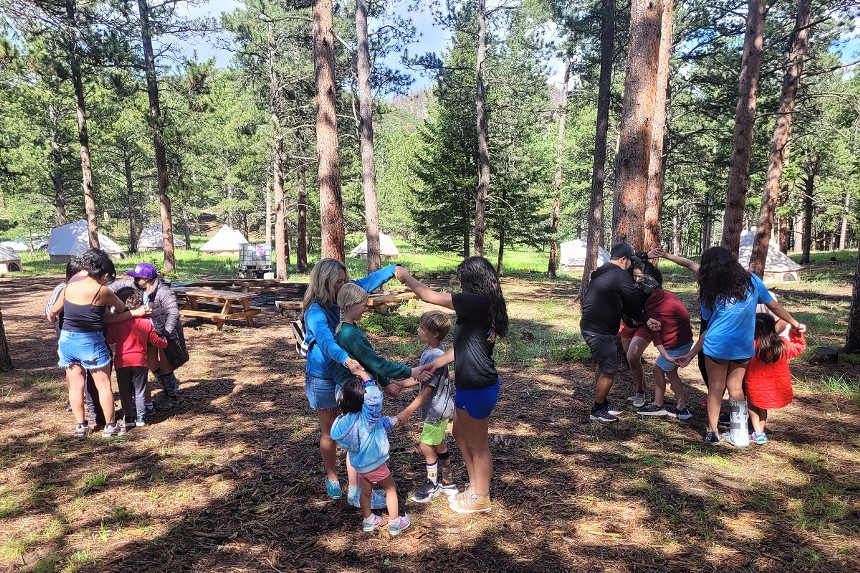
Colorado has about 1.3 million Latinos — nearly a quarter of the state's population — but Cal-Wood Education Center believes not enough are enjoying the environment around them.
Courtesy of Cal-Wood Education Center
First, he looked for an answer to these questions: "What's going on in this country? Why aren't Latinos involved in the outdoors, recreational activities, the natural sciences, like I was?" After speaking to people directly, he came up with his hypothesis: "Our people come here to work."
"They're not thinking about the other activities that this state has," Salgado says. "They don't come here for the mountains or because there's fish or because there are outdoor recreational activities, like you often see with people who are white, who come here to ski, to camp and all that."
Salgado's goal is to inspire a new generation of scientists and rangers by educating and introducing more Latino families to Colorado's public lands.
Originally, Latino Family Camps focused on teaching kids, but Salgado thought it was "too slow" when it came to getting youth interested. He wanted to keep bringing in young people, but realized he should also invite the families.
"I wanted those same kids to come to Cal-Wood, to come with their families, so those families better understood all that Colorado offers," Salgado says. "Not just for camping, but to go hiking, to fish, to hunt — everything that Colorado offers in this area. ... It's important for Latinos. We like to enjoy things in groups, so teach them where they can hike, where they can camp."
Salgado is hopeful that by bringing Latino kids into nature from an early age, he's sparking a passion in them for a career in sciences.
"Those kids who are growing up with those families are more exposed to nature, more exposed to something that interests them, and that way, they want to study a career in the sciences," he says. "But they have to start young."
And while kids become interested in the sciences, Salgado thinks that adults who go through the program are likely to leave with more of an appreciation for the environment, which he sees as a way to contribute to greener politics in the growing Latino population.
Latinos are the largest racial or ethnic group in Colorado, with 1.3 million Latino residents in the state, a quarter of the population. "Latinos are increasing in number," Salgado says. "And a lot of Latinos already vote, and more will soon, and we want Latino families conscientious and knowledgeable about the environment, nature, so that when there are changes in policy, they can assert their vote in favor of the environment."
The first year saw twelve families attend, Salgado recalls, adding that they loved the experience: "I said, 'Great! Let's make it bigger.'"
Last year, the Cal-Wood Latino Family Camps program hosted twenty weekend-long sessions for sixty families, including more than 600 family members. They were able to spend time in Rocky Mountain National Park and the forest around Cal-Wood, which is part of the Arapaho Roosevelt National Forest, as well as state and local parks.
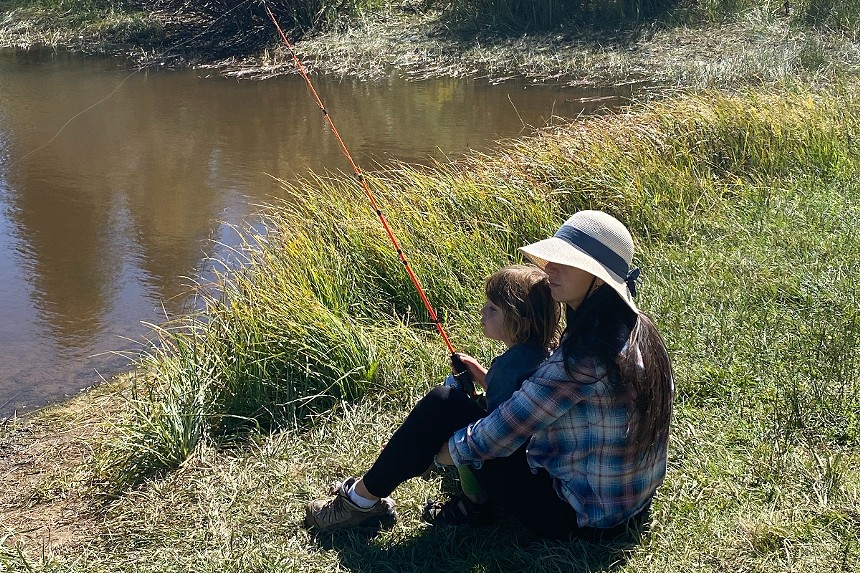
The Cal-Wood Education Center worries that Latinos are missing out on fun activities that require permits like fishing and hunting.
Courtesy of Cal-Wood Education Center
In Mexico, public land use is a concept that "doesn't exist," according to Salgado. So natives should be cherishing Colorado's outdoors even more, he says.
"Here, especially in Colorado, 55 percent of the mountains that you see from Wyoming to New Mexico are public lands," Salgado points out. "They're not just national parks; they're public lands — open to anybody who wants to go and explore them."
The solution to involving more Latinos in the outdoors "is to start taking them out and take them to safe places where they can stay with other families," he says, "where they feel welcomed and learn, and little by little they become familiar with what the state offers."
Families pay $25 per person to enroll in the weekend-long program, but children younger than five are admitted free. Cal-Wood also offers scholarships; it gave out the equivalent of $36,000 in scholarships last year. In 2023, it set out with the goal of seeing 100 families and 1,000 people participate in at least 25 Latino Family Camps, and to give out at least $60,000 in scholarships. There have already been 26 successful camps this year as the program heads into fall.
Salgado wants to expand the program to teach Latino families about recreational activities outside of camping, like rafting and backpacking. Cal-Wood will also start offering more Latino Family Camps in Leadville and near Colorado Springs, while also supporting organizations in those areas "so that they can do their own programs for their Latino community," he says.
"Almost 60 percent of the kids in school in Leadville are Latino," Salgado tells Westword. "And a lot of people don't know that. All the Latinos who live there work in the recreational and ski centers, or in construction or services. But Leadville is very beautiful, with a lot of public spaces, and the Latinos are taking advantage of it."
Ultimately, he hopes to offer the program in six more regions across the state.
"How is it possible that there aren't more organizations that do this?" he wonders. "Our people like the outdoors as well. It's beautiful to see the families remember a little about their Mexican traditions — and they come from everywhere, South America, Central America — and they love it."






